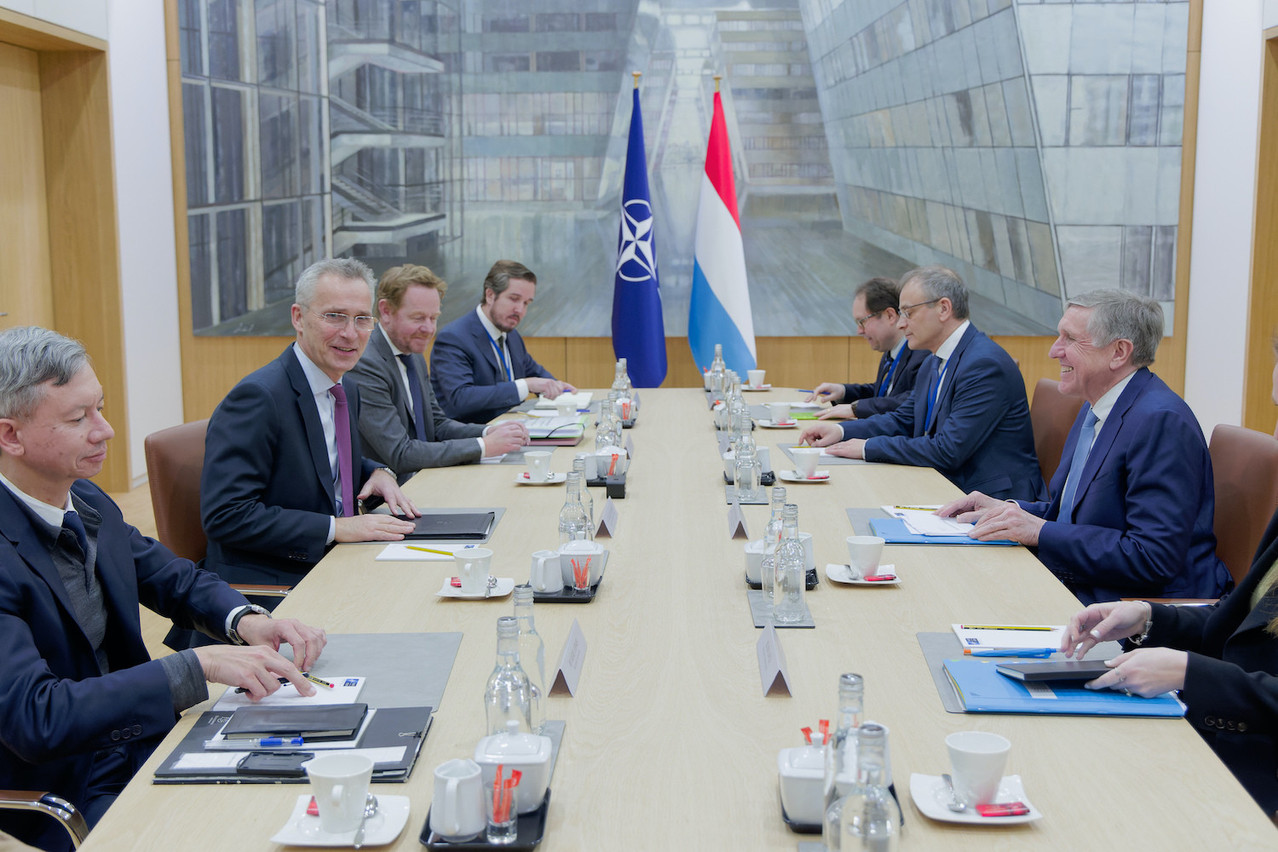All Nato members in 2014 pledged to move towards spending 2% of GDP on defence but Luxembourg defence minister (déi Gréng) has repeatedly said this target is unrealistic for the country given its outsized economy compared to the small size of its military.
“From a budgetary standpoint, there’s actually quite a lot of opportunity in the digital domain for Nato states that are unwilling to spend as much as is required on defence in some other domains,” said Fick during a briefing hosted by the US embassy in Paris.
Luxembourg by 2028 wants to spend 1% of GDP on defence annually, nearly €1bn. This includes boots on the ground operations such as a joint army unit with Belgium, but the country is also looking to cyber capacity as a priority.
Bausch in 2021 presented a and cyber is one of the central pillars of Luxembourg’s 2035 guiding principles on defence, published last month.
“Luxembourg stands by its current commitment,” a defence ministry spokesperson said by email, to “strengthen and enhance the cyber defences of national networks and infrastructures, as a matter of priority.”
Cyber spending
As part of its strategy, Luxembourg is investing in a cyber range--a testing ground for digital defence that allows training of operatives against potential cyber threats--hosted by Nato’s Support and Procurement Agency (NSPA), located in Capellen.
The government is also working with the NSPA on establishing a . And together with the University of Luxembourg, a national research centre for cybersecurity and cyber defence is in development.
“Spending for cyber is expected to increase over the next years,” the spokesperson said. “The exact amount can only be provided once the projects are formally approved, such as the Luxembourg Cyber Defence Cloud bill for a total amount of €250m.”
Nato secretary general Jens Stoltenberg in an April meeting with Luxembourg prime minister (DP) had encouraged the grand duchy to step up defence spending, saying this was “key for a fair burden-sharing between North America and Europe.”
There has been speculation that allies in Vilnius will seek to increase the 2% pledge, which the defence ministry in January said . “The calculation method is not adapted to the specificities of the allies, especially Luxembourg with its high GDP and limited human resources,” it told Delano.
The grand duchy’s army counts around 900 active soldiers and is the smallest of all Nato members. Per capita, Luxembourg ranked 10th among Nato countries in term of spending in 2021.
Renew cyber defence pledge
While it is not looking to make any additional commitments in Vilnius, the defence ministry said it welcomes a review of the cyber defence pledge, made by allies in 2016 and promising to “ensure that strong and resilient cyber defences enable the alliance to fulfil its core tasks.”
A US priority will be to revitalise the pledge, “the real commitment among the alliance to maintain robust collective defence in the cyber domain,” Fick said. “The Alliance still has interest in a desire to have a collective response and to bring collective resources to bear in order to deter that kind of activity.”
This includes putting into action Nato plans for a virtual cyber incident support capability, Fick said. “We need to operationalise it and make it real. The idea is to provide a menu of options for each Nato member state, public sector capability and private, to codify what’s available that each state can provide.”
Countries could then offer this capability “in a voluntary capacity to other member of the alliance in the event of a cyber incident.”
